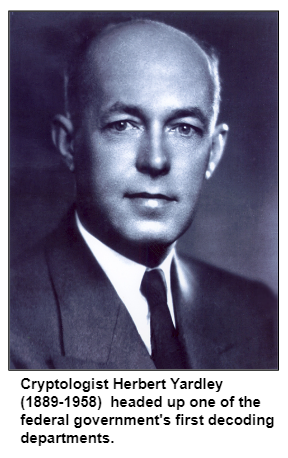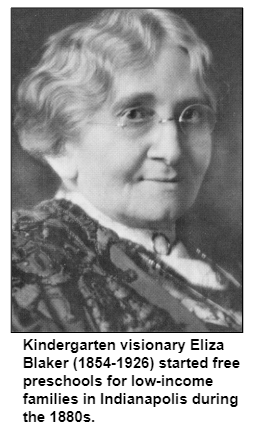Dec 6, 2018
A master decoder of secret messages from foreign governments wouldn't seem to have any connection to an early advocate for free kindergarten.
Or to a columnist who offered insights about the challenges of running a farm.

The cryptologist was Herbert Yardley (1889-1958), a native of Worthington in western Indiana who headed up one of the federal government's first decoding departments, which became known as the "Black Chamber." Yardley is credited with decoding telegrams from Japan, the Soviet Union and other nations during the 1910s and '20s. Thanks to the decoding of sophisticated diplomatic missives, the U.S. won major concessions from Japan during a 1921 naval disarmament conference.
The kindergarten visionary was Eliza Blaker (1854-1926), who started free preschools for low-income families in Indianapolis during the 1880s. She also founded a training school for kindergarten teachers, influencing hundreds of educators in Indiana - and beyond, because the teaching methodology at what was known as "Mrs. Blaker's College" inspired preschool teachers in other states as well. In 1930, Blaker's school was absorbed into Butler University.

Yardley, Blaker and Peden are among 40 notable Hoosiers whose impact is described in Indiana Originals (Arcadia Publishing), a new book by Ray Boomhower, senior editor at the Indiana Historical Society. Ray, who is Nelson's studio guest, describes the notables as "bold visionaries."
The son of a railroad telegrapher in Worthington,
Yardley initially took up that occupation before becoming a master
cryptologist. With him at the helm, the Black Chamber - officially
called the American
Cryptographic Bureau - decoded more than 45,000
telegrams "from the governments of such major powers as Great
Britain, France, Germany, Japan, 
Just as Yardley didn't invent cryptology or poker, Blaker did not originate the idea of kindergarten, which began in Germany during the 1830s. But she became a Midwest pioneer, initially organizing women to set up a free kindergarten on the near-westside of Indy in 1881. The next year, she opened the Kindergarten Normal Training School, later known as the Teachers College of Indianapolis.
During a 44-year period, Ray writes, Blaker "oversaw the education of thousands of youngsters and provided training for thousands of preschool teachers." She crusaded to give young children instruction that was, to use Blaker's phrase, "character forming."
By the time Blaker died in 1926, Peden was an editor at Farm Life, a nationally distributed magazine based in Spencer, Ind., that had one million subscribers, according to Indiana Originals.
After the magazine shut down during the Great Depression, Peden and her husband started a cattle, corn, hay and silage farm on Maple Grove Road near Bloomington. Her first book, Rural Free: A Farm Wife's Almanac of Country Living, was published in 1961.